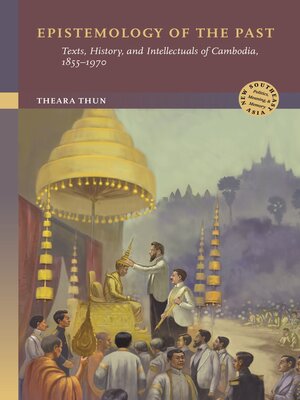Epistemology of the Past
ebook ∣ Texts, History, and Intellectuals of Cambodia, 1855–1970 · New Southeast Asia: Politics, Meaning, and Memory
By Theara Thun

Sign up to save your library
With an OverDrive account, you can save your favorite libraries for at-a-glance information about availability. Find out more about OverDrive accounts.
Find this title in Libby, the library reading app by OverDrive.



Search for a digital library with this title
Title found at these libraries:
| Library Name | Distance |
|---|---|
| Loading... |
The encounter of indigenous history-making tradition with Western historical practice has been long neglected in Southeast Asian scholarship. Theara Thun offers one of the first critical and systematic studies of the interface between these two distinctive modes of historical presentation and their impacts on society. By examining historical discourses on Cambodia through the precolonial, colonial, and post-independence years, he presents a compelling account of indigenous scholars, with varying perspectives, who advocated competing versions of history. Thun argues that new discourses about national history emerged by drawing on, reconfiguring, combining, or, in many cases, rejecting older discourses of precolonial historical scholarship.
Epistemology of the Past examines how certain types and forms of historical knowledge are created, understood, and used within a given context and how that knowledge has evolved over time. The book brings together and critically explores a large collection of original manuscripts and printed texts—notably, Khmer chronicle manuscripts and colonial-era works of French scholar-officials. Thun's analysis discloses multilayers of intellectual traditions and diverse views of Cambodian and, more broadly, Southeast Asian scholars engaging with European colonial scholarship. In addition to contributing to the multidisciplinary field of Cambodian and Southeast Asian studies, Epistemology of the Past will be essential reading for those interested in intellectual history, transculturation, historiography, intertextual studies, narrative studies, literature, colonialism, and nationalism.







